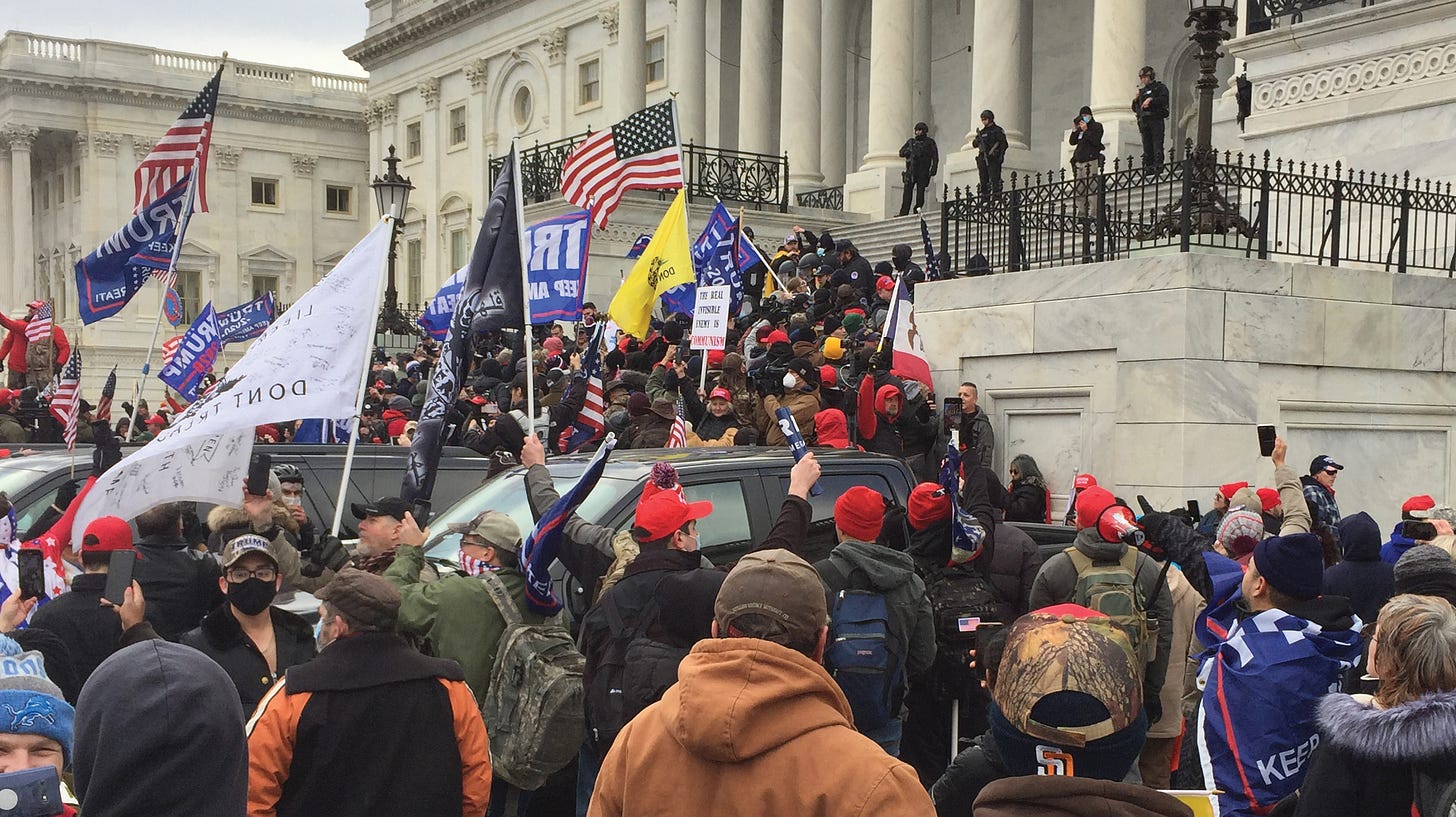Today's Radicals Are Not the Inheritors of the Boston Tea Party
The Boston Tea Party was not a simple act of radical thuggery or righteous rage. It was an attempt to advance an ideology that has proven to be the most stable, sustainable, & prosperous to this day.

When one looks at the political rhetoric coming from the mouths and fingertips of radicals today, it's hard to ignore all the revolutionary language. From the Black Lives Matter riots in the summer of 2020 to the storming of the Capitol on January 6th, extremists often seek to defend the chaos, destruction, and violence caused by their peers. One way that radicals on the right and left alike often seek to justify the violence of their movements is to equate them with the Boston Tea Party, and, more broadly, the American Revolution.
This comparison is not only morally bankrupt, it is intellectually dishonest.
The key factor separating today's would-be revolutionaries from the Founders is their ideologies—or lack thereof. Contemporary radical movements prioritize power over philosophy and political gain over advancing a coherent worldview. And while contemporary revolutionary movements fizzled or succumbed to infighting quickly after toppling their respective incumbent governments, the Founders left us an enduring republic due to the Enlightenment principles they advanced in an age of rampant power politics. The radicals of today do not share these principles. They instead share the power politics replaced by our Founders.
Our political and cultural institutions are the product of principled debate and consensus-building in the wake of the American Revolution. The Constitution that we take for granted today was crafted over five months of deliberation in a sweaty Pennsylvania Statehouse, and amended 27 times over 200 years by Americans of all stripes and creeds. The Boston Tea Party was not a simple act of radical thuggery or righteous rage. It was an attempt to advance an ideology that has proven to be the most stable, sustainable, and prosperous to this day.
Contrast this with the demands of today's "vanguard," and the difference becomes clear. Whether they shout "Defund the Police" or "Hang Mike Pence," they reveal their agendas to be ones of destruction. Far from advancing a coherent worldview or pursuing lasting change, these radicals demand aggressive action now without a care for what comes later.
Zealots might claim that there actually is a deeply rooted ideology driving their quests for power. "You haven't read theory," they might cry. They may even try to argue that one simply hasn't heard of their philosopher du jour—Fanon, Gentile, Bauer, or Blanqui—as if the right incantation of words from a long-dead Hegelian would suddenly make their partisanship seem like anything more than a power grab.
One can look to all revolutions in modern history not driven by enlightenment thinking—from Lenin's Russia to Hitler's Germany—to realize the abject failures that stem from chanting anti-enlightenment slogans on the march to the battlefield. These ideologies all demand that their adherents are losers. They have no clear, cogent promise of a future to offer, only of an "evil" to oppose today. But once the evil enemy falls, the guns never go away. They turn inward.
Marxist-turned-dissident Karl Kautsky said it well of Soviet Russia: "The Bolsheviki under Lenin's leadership...laid the foundation for a new dictatorship in place of the old Czarist dictatorship."
What's more, the "new" and "disruptive" ideologies that they push are nothing but the rotted-out husks of old dead dogmas. When one looks at the state of political discourse today, it's easy to see institutions created by our Founders as archaic and obsolete. But in the grand scheme of history, the American Revolution represented a massive departure from the natural order and a gargantuan step forward for humanity.
To be clear, that natural order was one that Thomas Hobbes rightly called "solitary, poor, nasty, brutish, and short."
The state of nature is characterized by tribal conflict, a mercantilist system that incentivizes zero-sum conquests of subjugation and domination, and a state of constant international (and intranational) warfare. The American Revolution disrupted this historical norm and laid the foundation for a uniquely free country in the United States. And when "new conservatives" or "the new left" trot out their latest chants of tribalistic power politics, they are doing little more than calling for a return to that awful norm.
The ideals of the Declaration of Independence and the Constitution are groundbreaking in human history. Classical liberalism is indeed revolutionary. And ensuring the survival of our revolutionary nation means defending the enlightenment thinking of our Founders from the reactionary movements that litter the political landscape today. Those stodgy old institutions that slow the ascent of today's radicals were put there with the same revolutionary spirit that tossed tea into Boston Harbor 250 years ago. And the attempts of folks like Freedom Conservatives to protect these institutions represent efforts not to extinguish the flames of revolution but to keep that flame alight for generations to come.
Bear Smith received degrees in Political Science and Criminal Justice from California Lutheran University. He is currently a consultant at Corporate Visions and a commissioner for the City of Meridian, Idaho, and authors the political & personal blog Bearly Thinking. @RealBearSmith



